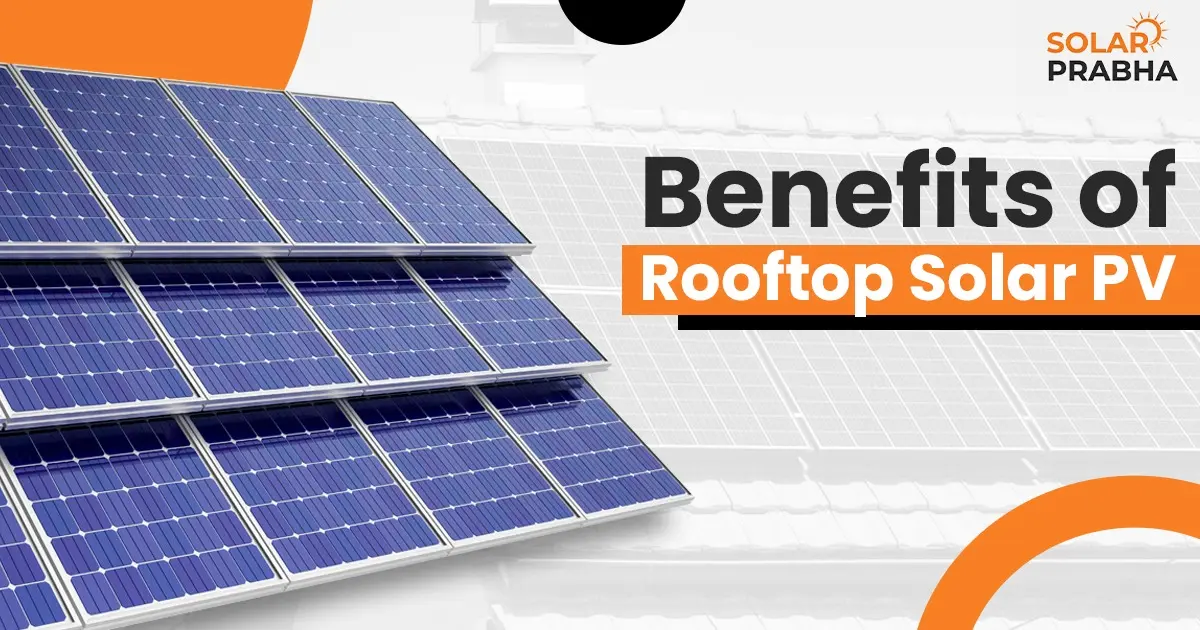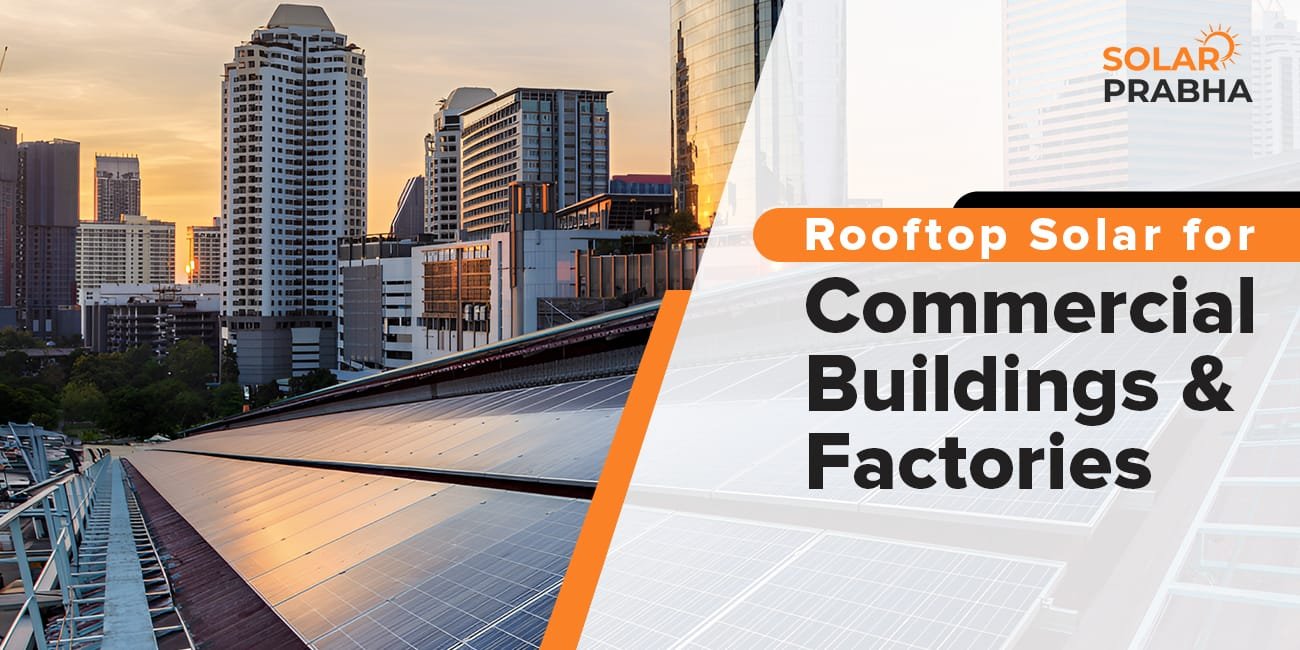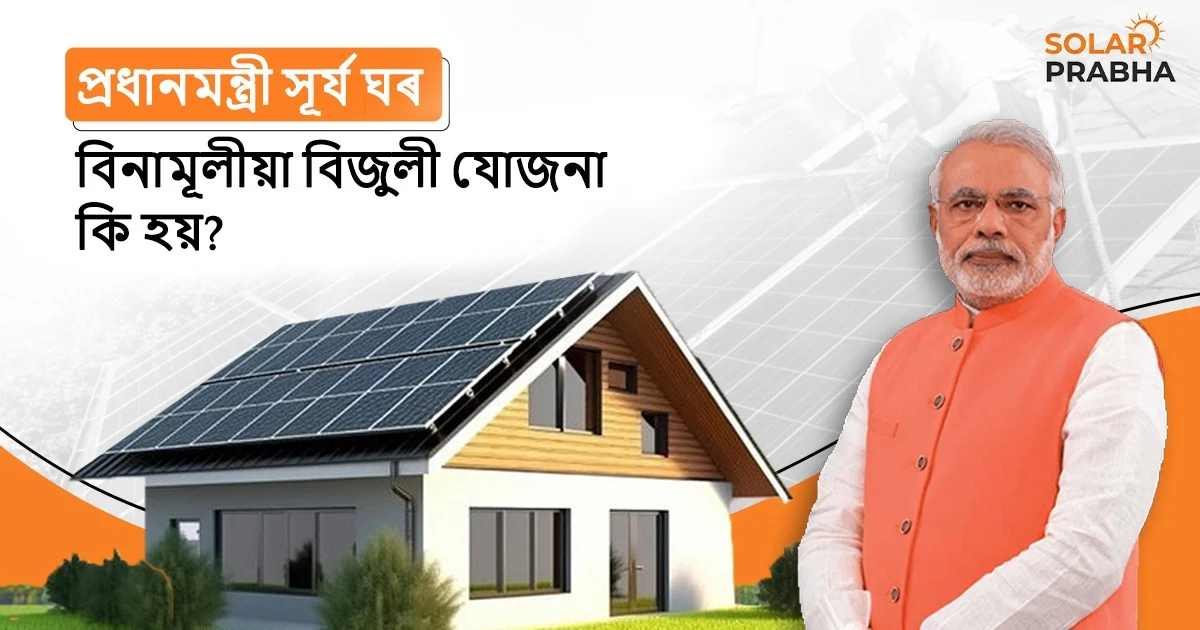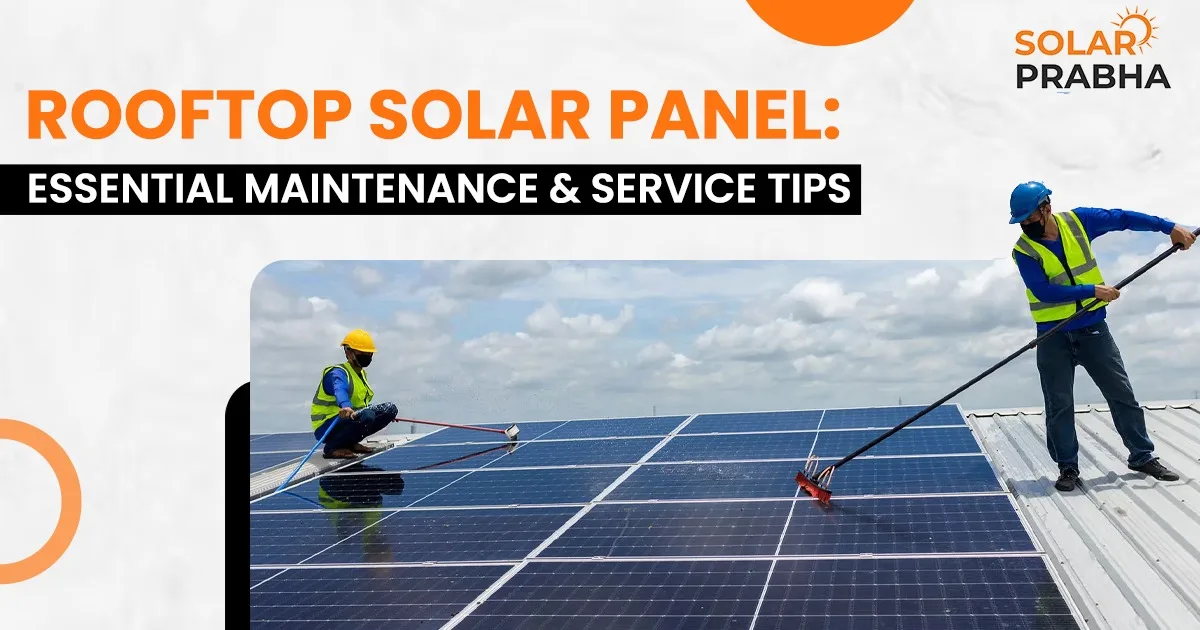In the wake of global economic shifts, companies are adopting rooftop solar panels for commercial buildings and factories as a testament to financial resilience. This surge isn’t just a temporary trend—it’s a strategic shift that’s revolutionizing how businesses manage their energy needs and operational costs. From vast industrial sites to small urban offices, solar is proving its value beyond just being an eco-friendly initiative.
The numbers tell a compelling story. Businesses that have embraced solar aren’t just cutting costs; they’re opening up new revenue streams. Take those savvy operators with net metering setups – they’ve transformed their rooftops into mini power plants, selling excess energy back to the grid. It’s a move that’s helping some firms keep the lights on and paychecks flowing, even in challenging times.
In this blog, we will be exploring rooftop solar for commercial buildings and factories, their benefits and key considerations while installing them.
Benefits of Rooftop Solar Panels for Commercial Buildings
There are diverse benefits of installing rooftop solar panels for commercial buildings. These include financial savings, environmental benefits, and improved public relations for businesses. Below are some detailed explanations of these benefits:
Shield against rising electricity prices
Everyone feels the pinch of rising electricity prices. However, industrial and commercial consumers feel the pinch a little more than residential consumers. Also, Grid electricity prices are always rising.
Therefore, rooftop solar for industrial use is an economically beneficial choice. Consequently, industries that are paying high bills can benefit and are benefiting largely from it.
Tax savings from accelerated depreciation
The Section-32 of the Income Tax Act, allows the consumer to benefit from accelerated depreciation of 40%. Therefore,non-domestic solar installations get tax benefits.
Financial savings
When rooftop solar panels are installed on commercial buildings, it opens a window for financial savings. This happens because by generating their electricity, businesses can reduce their energy bills. Also, they can earn money by selling excess electricity back to the grid.
However, the amount of money saved depends on the size of the system, available sunlight, and the cost of electricity. Even then, businesses can expect to see a return on investment within a few years, while the savings last for decades.
Environmental benefits
There are environmental benefits from rooftop solar panels. Rooftop solar panels generate renewable energy, so businesses can reduce their carbon footprint and contribute to a greener future. Moreover, there are no emissions from solar panels, and their installation does not require any land usage.
Improved public relations
Did you know that installing rooftop solar panels can also improve a business’s public relations? Today, people are more environmentally conscious and are more likely to support businesses that are committed to sustainability. Therefore, by installing solar panels, commercial buildings and factory owners can demonstrate their commitment towards contributing to a cleaner environment and greener future. Consequently, this improves their reputation and attracts new eco-conscious customers.
Government incentives
Commercial Buildings and factory owners can enjoy government incentives for installing solar panels. Consequently, these can include tax credits, rebates, and grants for solar installations. Also, these incentives can cover a significant portion of the installation costs. Therefore, making solar panels an even more attractive investment for businesses.
Reduce operational expense via net-metering
Businesses can benefit hugely through net metering. This happens because the electricity generated by solar panels is more than it is consumed in commercial or industrial establishments. Consequently, the business owners can supply back the extra power generated to the electricity grid and the power supplier pays for the electricity supplied to the grid. In simple terms, the electricity received is offset with the electricity supplied and the net surplus or deficit is billed as required.
Is Your Factory Roof Suitable for Rooftop Solar Panels?
If you are thinking of installing rooftop solar panels in your factory. Do check the following factors when evaluating your factory’s solar potential:
- Available Rooftop Space: It is important to check out the usable rooftop space for panel installation. Therefore, you should analyze your factory’s rooftop area. Also, consider factors like shade from chimneys or water tanks.
- Energy Consumption: Check out the factory’s average monthly electricity consumption (refer to your electricity bills). This will help determine the required solar system capacity. Moreover, if there is higher consumption it will necessitate a larger system.
- Roof Type and Orientation: Generally, south-facing, sloped roofs are ideal for maximizing sunlight exposure. However, advancements in technology allow for installations on flat or slightly inclined roofs as well.
- Structural Strength: Check if your roof is structurally sound to support the weight of the solar panels and mounting system. Consider consulting a structural engineer to assess your roof’s suitability.
Rooftop Solar For Factories: Compelling Reasons
If you are still unsure about rooftop solar panels for your factories, check out this compelling case for embracing solar power:
- Slash Electricity Bills: Rooftop solar panels are designed to help you reduce electricity bills. Also, solar power generation helps you offset grid dependence. Thus leading to substantial cost savings in the long run.
- Government Incentives: Our government is actively promoting solar power adoption through various schemes. Moreover, the Ministry of New and Renewable Energy (MNRE) offers subsidies and tax benefits for rooftop solar installations. Therefore, the installation is very affordable. Additionally, specific state government programs offer additional financial support.
- Boost Your Brand Image: You can soon become an eco-conscious brand by switching to solar, as consumers are increasingly environmentally conscious. Rooftop solar panel installation will help you demonstrate your commitment to sustainability.
- Reliable Power Backup: Say goodbye to power outages which can disrupt production and cause financial losses. Moreover, a properly sized solar system with battery backup can provide a reliable source of electricity. This will ensure power supply during grid failures, ensuring business continuity.
- Low Maintenance: You will be surprised at the minimal maintenance requirement of modern solar panels. Moreover, regular cleaning to remove dust and debris is all it needs for optimal performance. Also, the technology itself is robust and built to last.
Key Considerations for Rooftop Solar Installation
You should be aware of some important considerations before installing rooftop solar panels:
- Choosing a Reputable Solar Installer: Invest some time to research and select an installer with experience in handling commercial solar projects. Also, check their certifications, project portfolio, and customer reviews.
- Understanding System Components: You must know that a rooftop solar system comprises solar panels, inverters, mounting structures, and a monitoring system. Therefore, learn about these components and their functionalities.
- Net Metering: Did you know that Net metering allows you to sell excess solar power generated back to the grid and also receive credits on your electricity bills? Therefore, you should check with your local electricity distribution company (DISCOM) for net metering regulations and procedures.
- Financing Options: Yes, you get government subsidies. However, you can also explore loan options from banks and financial institutions for rooftop solar projects.
The Rooftop Solar Installation Process for Factories
Now, that you know a little about rooftop solar panels benefits, let us explore the installation steps for factories. The process typically involves these steps:
- Feasibility Study: Get ready for a qualified solar installer who will conduct a comprehensive analysis of your factory’s rooftop space, energy consumption patterns, and suitability for solar power generation.
- System Design & Proposal: Following the feasibility study, the installer will design a customised solar system for your specific needs. Also, this proposal will include details like system capacity, estimated power generation, cost breakdown, and payback period.
- Government Approvals: You might need certain government approvals necessary for grid interconnection and net metering.
- System Installation & Commissioning: Next, you can watch experienced technicians handle the installation process, ensuring safety and adherence to industry standards. Following this, the system will undergo testing and commissioning to verify its functionality.
- Maintenance & Monitoring: Remember that cleaning and preventive maintenance are essential for optimal performance. Additionally, you can get a monitoring system that allows you to track your energy production and identify any potential issues.
The Cost of Rooftop Solar for Factories in India
The cost of a rooftop solar for your factory in India depends on several factors:
- System Capacity: Of course, larger systems with more panels will be more expensive. Moreover, the capacity is determined by your factory’s electricity consumption.
- Panel Brand & Quality: If you choose premium solar panels from reputed brands, they will cost more than lesser-known brands. However, premium brands offer higher efficiency and better warranties. Thus leading to long-term savings.
- Balance of System (BOS) Costs: The rooftop solar panel system includes the inverter, mounting structures, cables, and other components. Also, the quality and complexity of the mounting structure can influence the BOS cost.
- Government Subsidies: Your total upfront cost will be subsidised by applicable government subsidies.
- Financing Options: Also, the interest rates on loan options can affect the overall cost.
Conclusion
Harnessing the power of the sun isn’t just for homeowners anymore. Businesses are discovering that rooftop solar installations can be a game-changer, offering a trifecta of benefits: slashing energy costs, shrinking carbon footprints, and boosting their green credentials. It’s not just about saving money – it’s about futureproofing your business in a world that’s increasingly focused on sustainability.
But let’s be real – making the switch to solar isn’t a decision to be taken lightly. It requires careful planning, a solid understanding of your energy needs, and expert guidance to ensure you’re maximizing your return on investment. That’s where we come in. Our team of solar specialists has helped countless businesses navigate the transition to clean, renewable energy.
Ready to explore how rooftop solar can transform your business? Don’t let another sunny day go to waste. Give us a ring at +91 7099030047, and let’s talk about how we can tailor a solar solution that fits your unique needs. Who knows? Your next big business breakthrough might just be waiting on your roof.





